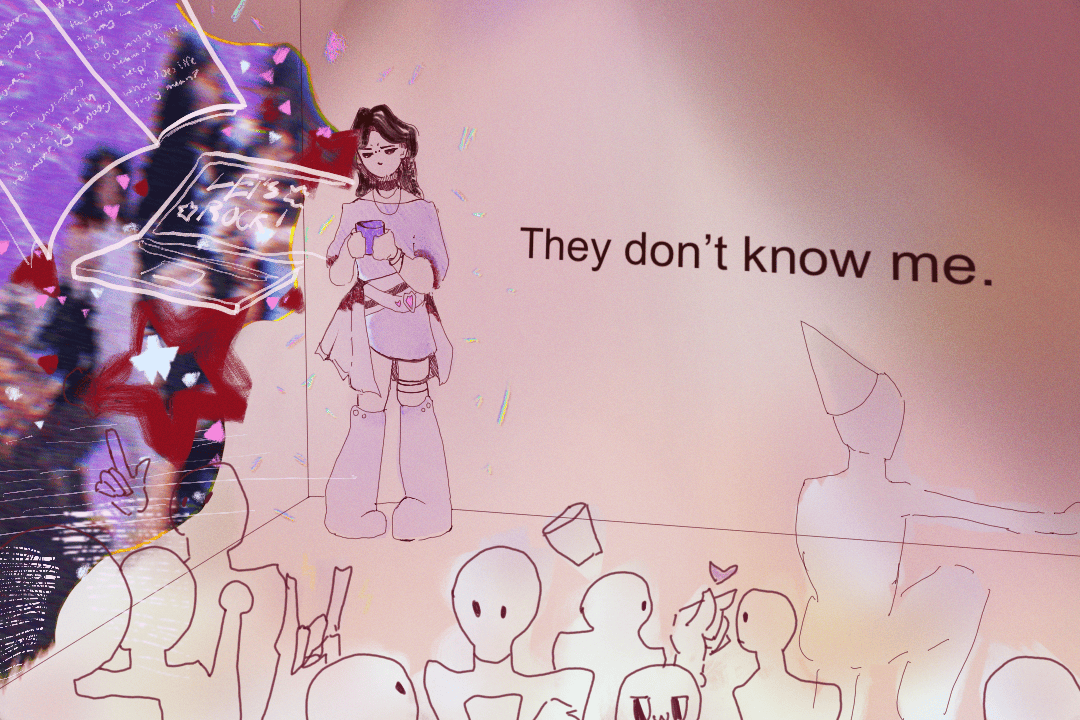What makes us unique as humans are our differences. Some people are socially active and enjoy constant interaction, while others prefer solitude and minimal social connections. Even introverts — often perceived as disliking social interactions — can vary in their confidence level and ability to engage with others.
According to WebMD, there are four types of introverts: social, thinking, anxious, and restrained or inhibited. I will focus mainly on anxious introverts, individuals who “seek out alone time not just because they like it, but because they often feel awkward or shy around people.”
There’s no shame in being an anxious introvert, even if one may perceive you as antisocial or unwilling to cooperate with other people. In fact, an article published in Time demonstrates that introverts are great listeners and observers. However, being an anxious introvert in university is no easy feat, as it can present many challenges in university, where constant interactions may significantly impact one’s post-graduation prospects.
Fear of networking
Networking is often said to help students foster professional relationships, broaden work opportunities, and learn inside-industry practices. While the concept of networking offers many benefits for one’s career prospects, the same cannot be said about its execution.
Since networking requires social interactions — something anxious introverts shy away from as it causes some to overthink and stress — it’s no surprise that they may avoid it. While some anxious introverts are capable of socializing, they may avoid doing so to stay away from interactions with unfamiliar people while pursuing connections.
Unfortunately, universities and society as a whole struggle to provide anxious introverts with diverse ways to connect in the professional world, leading the introverts to sacrifice future opportunities to maintain their own comfortability.
Feeling left behind
As an anxious introvert, it can be easy to feel left behind while extroverts latch onto networking opportunities and other social events to promote themselves. Their pathway to success may seem easier compared to anxious introverts because some extroverts don’t struggle with developing feelings of awkwardness or anxiety.
As a result, watching fellow students in the same year grow their portfolio and professional experiences at a faster rate can be demotivating and upsetting. Even as some introverts navigate university academics with ease and achieve high Cumulative Grade Point Averages, they may lag in social activities, which makes it harder to appeal to employers who look for outwardly confident and passionate students — especially those leading clubs and participating in extracurriculars.
Even among introverts, it can be overwhelming or upsetting to watch others easily socialize to advance their careers. Research in the journal Frontiers in Psychology found that “introverts with high social engagement have higher self-esteem than introverts with low social engagement.”
Finding your strength
Despite all the issues presented, introverted students can still shine in their own ways. Many successful individuals such as Steven Spielberg and Eleanor Roosevelt are introverts. Yet, they were able to work with others to promote human rights, engage in large speaking events, and create some of the greatest movies in our lifetime.
This goes to show that even introverts can leave a mark in the world in their own ways. As someone who considers themself to be an anxious introvert, I struggled to find my place when I first started university, but with time I found ways to grow as a student and began building my own portfolio. For example, I started writing and editing for various U of T student publications such as Mindwaves, The Vision Journal, and The Varsity.
Through my own successes as an anxious introvert, I would like to encourage other anxiously introverted students at U of T to keep fighting and to not to lose hope. Everyone has their own paths in life — it just may take longer for some than others to be filled with successful stories.
While they may be challenging to find, there are many activities where anxious introverts can strive for success. Even though it may require a conversation or two with professors, as long as you lead with intention, you will eventually find the right place to learn and further yourself, even as an anxious introvert.



No comments to display.